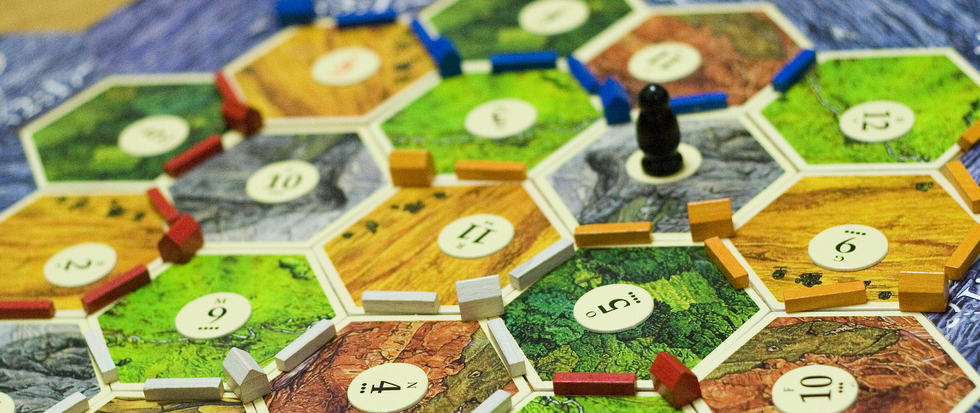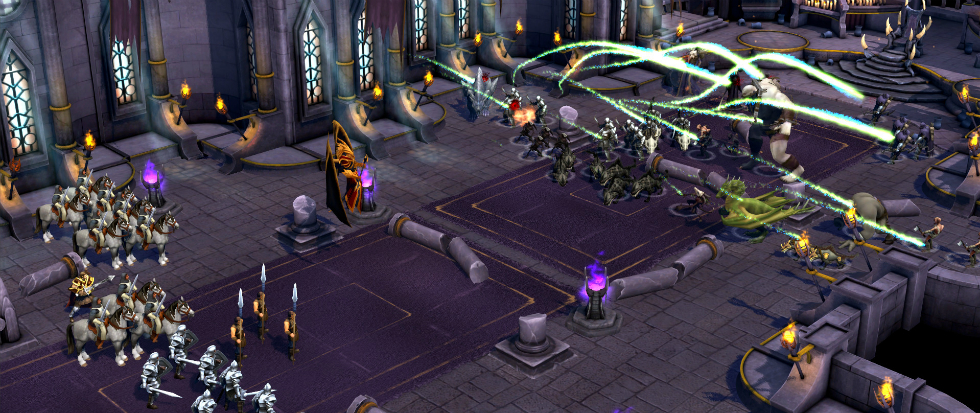
What Keeps You Going
Legacy-style board games that change permanently each time you play are hard to pull off. You have to balance surprising players with every new gameplay element revealed while making a balanced game. Pandemic Legacy accomplishes this by transforming the familiar Pandemic base with each new game, adding new things at specific points that swerve your trajectory in profound ways. But you’re never totally in control of when things unlock, as they mostly appear when they’re supposed to at specific points during your campaign. What if unlocking new features was integrated into the mechanisms of the game, and the game rewarded you for unlocking them? Then you’d get something like Stonemeier Games’ Charterstone, a game that takes the legacy format to new places and puts the thrill of opening something new into your hands. It’s just a shame that it doesn’t feel like it properly rewards you for opening up more of the game, an act that should feel rewarding in and of itself.
Charterstone’s legacy elements manifest in two distinct ways: by building new buildings for your workers to go to via stickers you place on the board, and through opening crates that unlock new buildings and introduce new game rules. Both of these acts will get you victory points, encouraging you to build up your charter and expand the game further. For players who like exploring a game and unearthing its secrets, it’s great to get a little bit of a reward for doing just that.
The problem is that it isn’t enough recompense for essentially diverting your attention away from the game proper. Focusing solely on buildings and crates isn’t a viable strategy on its own, and multitasking with a more profitable strategy is difficult. You’ll still be opening your fair share of crates and placing enough building stickers to fill up your charter, though, and the high you get from opening something new in a legacy game is still there.
Except it’s diminished slightly thanks to the fact that the actual contents of the crates ultimately aren’t that interesting. Sometimes they’ll unlock new rules and ways to approach the game, but they almost always come in the form of new types of Advancement Cards, cards you can buy at market to give you some sort of benefit. I’m downplaying the variety of these cards somewhat, but not by much, as they all behave similarly. Better are Personas, which are essentially job titles you take on for benefits. They’ll often point you to a specific strategy, a welcome focus in a game so open-ended. But it’s undeniable that some Personas are better than others, sometimes by a lot. But nearly every box has Personas inside of them, so they stop being thrilling after the 12th one you collect. And then there’s the buildings, buildings, and more buildings. Every single crate you can open during a game contains some amount of buildings you can build, which, again, begins to get monotonous after so many openings.
The game’s simple story doesn’t pass muster, either. The story of the Forever King who wants you to develop your charter is simple to the point of childishness, and the darker turn the story takes later – an eternal king who uses the city building as a pretext for preparing bodies to inhabit – is telegraphed so early that you wondered why they even bothered. But this can be forgiven to a point, as the initial whimsical vibe meshes with the cutesy vibe of the artwork fairly well. Less forgivable is the game’s usage of racial stereotypes, such as giving the East Asian player avatar the Masseur Persona and the ability to build a Spa building. And putting the Black character in charge of the coal resource is just tone deaf on the face of it. Charterstone is peppered with several examples of racially insensitive components like this for which there is no good excuse for.
All these problems are a shame, because Charterstone creates some truly transformative moments. The best is the game that puts you on a virtual timer by having you light an included small candle and avoid it going out on your turn. But these moments are rare and mostly come from the variable rules that get established at the beginning of each game, much like previous legacy games. It’s telling that, for all the new things it tries to do with the legacy genre, that it’s the already established methods that are the most successful.
The concept of Charterstone is incredibly cool: You’re building a game. And the allure of exploring the game as you build is quite exciting in theory. But this excitement is tempered by the fact that so much of what you’re discovering is monotonous and tired, whether it’s yet more buildings or harmful stereotypes.





